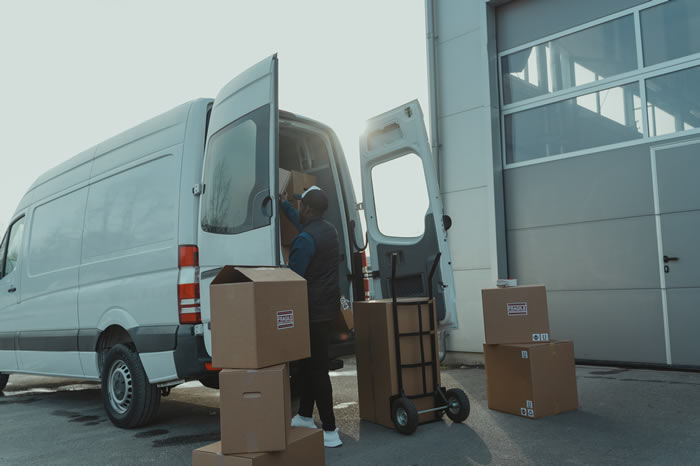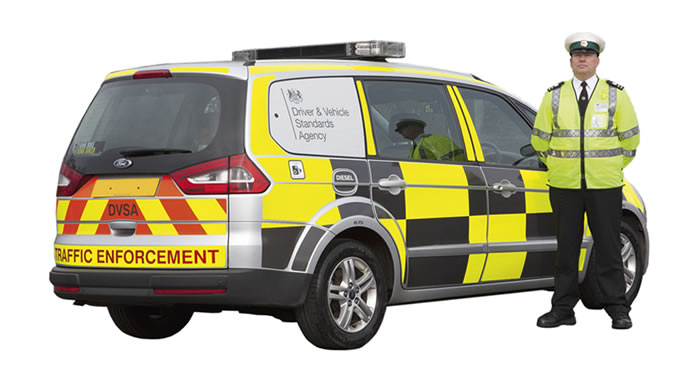Dangers of Overloading Vehicles
If your vehicle is overloaded, it not only causes damage to the roads and to your vehicle but also puts you and other road users at risk. Vehicles react differently when the maximum weights which they are designed to carry are exceeded and the consequences can be fatal. Overloading puts a massive strain on the suspension and tyres and makes the vehicle less stable, difficult to steer and take longer to stop. It is also illegal. Random checks are being performed throughout the UK by VOSA and the Police to enforce overloading regulations.


Who is responsible for my vehicle load?
Ensuring the vehicle is not overloaded is the moral and legal responsibility of you and your employer. In addition to this, if anyone else causes or permits an overloaded vehicle they may also be charged with committing an offence. All companies have a duty of care under the Health and Safety at Work Act 1999 for the safety of employees at work. This means that an employer must do all it can to ensure the safety of its driver, including having policies in place to ensure that its vehicles are not overloaded. The Road Traffic Act 1988 requires “vehicle users” to ensure that vehicles are not overloaded. If a vehicle is found to be overloaded both the driver and operator could be prosecuted or cautioned. The legislation imposes fines of up to £5,000 for each offence. That’s each overloaded axle plus any overloading on the total weight. Also, if a vehicle is dangerously overloaded the driver could face a charge of 'dangerous driving' which carries a maximum penalty of two years in prison. Other offences within the Road Traffic Act include refusal to allow the vehicle to be weighed and obstruction of an officer which also carry a maximum fine of £5,000. If a vehicle is overloaded and results in someone being killed, both you and your employer could face going to jail for Manslaughter or Death by Dangerous Driving.
What will happen if my vehicle is found to be overloaded?
If your vehicle is found to be overloaded by an enforcement officer it can result in a prohibition notice which will prevent you from continuing your journey until the weight is corrected. This may mean the goods being unloaded to bring the weight down or being redistributed (in axle overload cases). You will then be issued with a ‘removal of prohibition notice’ to continue your journey. Alternatively, you may be issued with a ‘direction to drive notice’. This will allow you to drive to a specified location to offload.
Image taken from gov.uk under the Open Government License V3

Vans have the highest prohibition rate of overloaded vehicles with just over one in five vehicles weighed by VOSA between April 2002 and March 2003 being prohibited.
To ensure that your vehicle is not overloaded you should:
• Know the weight and weight limits of your vehicle. Maximum permitted axle weight and Gross Vehicle Weight (GVW) can be found in your driver handbook or sometimes on a plate located by the bulk head or by the driver or passenger door;
• Be careful not to mix up the Gross Vehicle Weight (GVW) with the Gross Train Weight (GTW). The GVW is the maximum permitted weight of the vehicle (plus any load it is carrying), while the GTW is the maximum permitted weight of the vehicle plus any trailer being towed (plus any load being carried in the vehicle and trailer);
• Remember that the GVW includes the weight of the vehicle, driver, load and any passengers. Also, allow for the weights of any pallets or packing cases and anything on a roof rack;
• Ensure the load is distributed evenly. After any drop-offs, re-check the distribution of the remaining load;
• Ensure the GVW is checked before setting out using an in-house or public weigh-bridge. While public weighbridges can be used to obtain accurate gross weights, in some cases the approach and exit paths are not sufficiently flat or level to give accurate results for axle weight, which should if possible be checked using an in-house weighbridge;
• Never automatically trust declared weights, invoices or delivery notes that were given to you by customers. Remember that you and your employer holds the responsibility for not overloading, not the customer.



